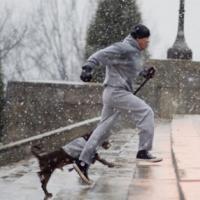
Practice and Training
Hello GM thamizhan;
I have questions relating to chess studying and hope you can answer these questions:
- After reading IM Soltis's Studying Chess Made Easy I understand that in order for a player to improve in chess they need both practice and theory training.
a) I usually spent some time on the internet playing few rapid chess games. I hope to use my knowledge I learned from books and apply them to these games. Do you think I should play with longer time control (G/60, G/90, etc)? Do you think correspondence chess would be better than rapid chess games?
b) How should one analyse their practice games? Should one use computer to check if there are any tactical errors?
c) I wonder which part of the games (i.e. opening, middlegame, endgame, tactics, strategy, etc) should a first category player focus on. What would be your recommendation? I usually focus on tactics...however, I have problems creating tactics on the board. There are few players in my club who would go all out regardless of what the position tells them and they manage to get their opponents to fall in to tactical traps. How can I use tactics I learned from books and applied them on the chess board?
P.S. Your previous articles are very helpful for players like me...I hope you can answer my questions.
By the way, I heard the World Championship Match will be held in Chennai. Is this true?
Thank you!!
Onga Simpsons
Dear Onga,
I haven’t read the mentioned book but I am sure the point is correct. A player needs both practice and theory training to prepare themself for tournaments.
a) Playing rapid chess on the internet is certainly good. As you said you can use your knowledge in those games. If you want to practice an opening you prepared or just to keep in shape. Playing longer time controls will be much more useful as in rapid games you will find yourself in time trouble very soon. Here you will have more time to calculate and play your middle game and endgame. Correspondence chess can be really helpful, the only important point to remember here is “don’t move the pieces when you are analyzing.” You have all the time in the world to calculate and play, so calculate without moving the pieces. It will help you improve your calculation.
b) Analyzing the games is very important in improving your game strength. To start with write all the variations and verbal analysis you calculated during the game. Now you can check them with computers and compare your analysis. Even otherwise it will be useful to input your analysis if you want to check with a coach. They will find your strengths and weakness.
c) To become a strong player you must train yourself in all the mentioned areas of chess.
Opening: This is just an ocean. Even the top level Grand Masters are working everyday but it never ends. It is good enough if you have an opening repertoire with two opening against all the main lines. For eg: Against 1.e4 if you can play Sicilian Najdorf and Caro-Kann or against 1.d4 Nimzo Indian and King’s Indian. It would be best if you have one solid opening and one sharp opening. This is the optimal level you should be working towards. Just know the basic ideas in each opening you play. I am sure the opening articles on chess.com will definitely help you in this.
Middlegame: It is important to develop both positional and tactical skills.Figure out your natural style first and select your openings accordingly. I assume that you like to play more complex positions where you can create tactical combinations. I would recommend you to solve as many problems as possible which will help you in improving your tactical skills. Study games of legends like Mikhail Tal, Fischer, Kasparov etc. The more games you study and recognize the patterns, the sooner you will find yourself solving tactics effortlessly. With experience you will be able to find the tactics hidden in the position.
I would not recommend going for an all-out attack regardless of the position, it might help you win a couple of games but simply it is not proper chess. Once you have control over the position you will be able to beat such players easily. In any given position every piece has a duty allotted to it and that it has to perform. If those pieces are taken away in the name of attack then naturally some weaknesses will be created. If you manage to capitalize on it, you will win pretty easily.
Improving your technique is another very important skill to develop. Study games of Kramnik, Petrosian etc.: the greatest masters in positional play. Even the smallest advantages they manage to convert into a full point.
Endgame: Learn Basic endgames. 80% of endings are Rook endings. Endings are the most boring part but the most useful as well.
To begin with I recommend you to start with endings. It is boring but still you will have to do it. Even I found it difficult when I had to do it. But remember the endings that you learn will help you score several points. Solve problems to improve your tactical skill. Learn the basic opening ideas. This will improve your game strength a lot.
Here is one good place you could start this study:
http://www.chess.com/article/view/video-series-on-rook-endings and
http://www.chess.com/article/view/video-series-on-king-and-pawn-endings
Good luck!





